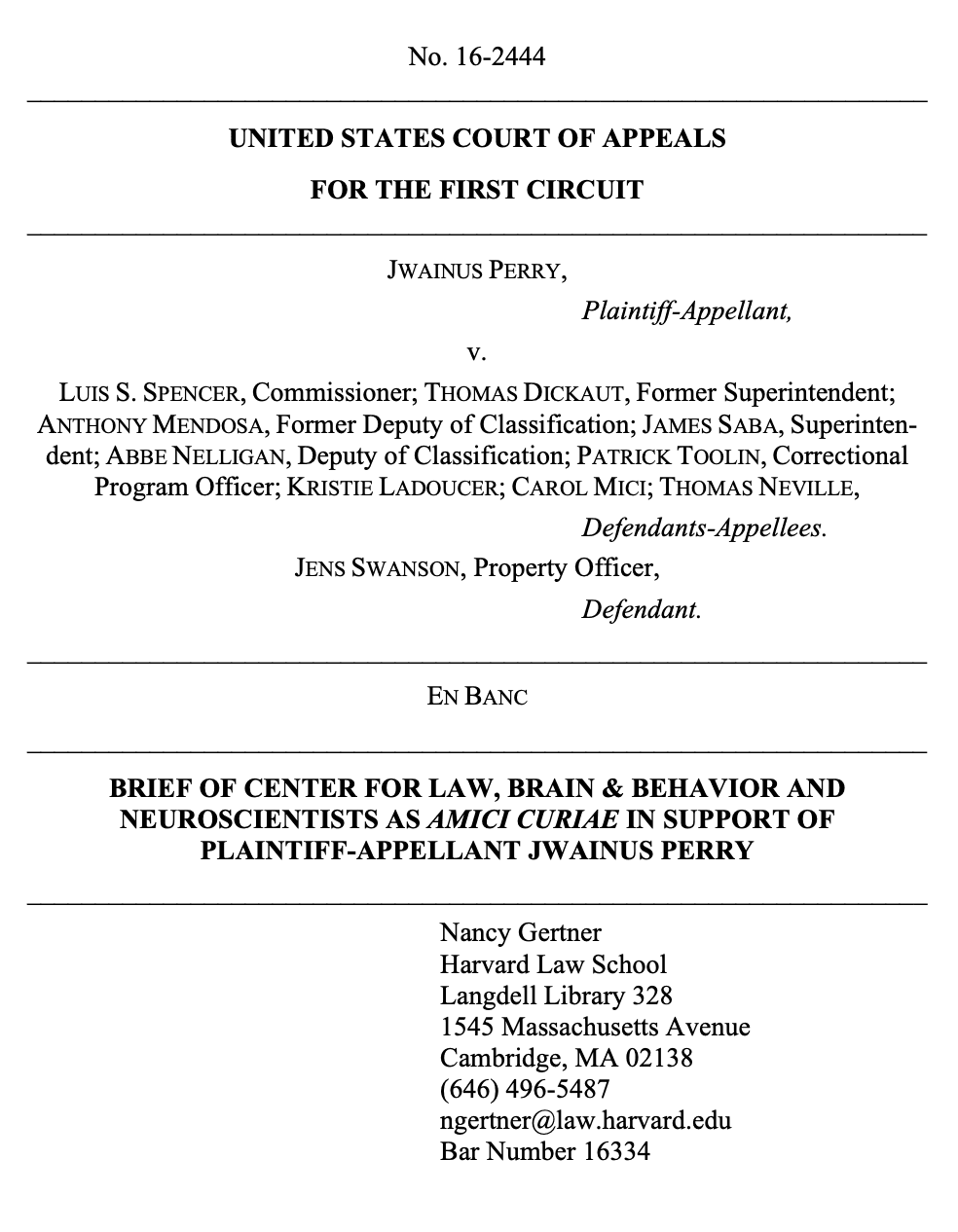
Summary of Argument
The human nervous system is fundamentally plastic: Brain structure, functions, and connections all change in response to intrinsic and extrinsic stimuli by reorganizing, even in adulthood. This malleability makes us deeply vulnerable to harmful environments. And those environments have impacts that are more than “merely” psychological; they change the brain itself. They amount to a physical injury. Legal policies which suggest mental injury is somehow not physical are subscribing to outdated scientific doctrine, especially with respect to solitary confinement.
Research has shown that the conditions of prolonged isolation, chronic emotional stress, and disrupted sleep endemic to solitary confinement are capable of causing adverse anatomical and functional changes in the brain, including in areas core to memory and learning (hippocampal shrinkage in chronic emotional stress and chronic sleep deprivation); in areas core to the social and emotional brain (social deprivation and atrophy in the posterior superior temporal sulcus, chronic sleep dep- rivation and damage to the insula and amygdala); in disordered immune and stress systems (impaired sleep increasing the presence of brain tau plaques, social isolation increasing amyloid and tau plaque presence and increasing cortisol levels); in functional disruptions related to emotional processing (chronic stress and post-traumatic stress disorder manifesting with hyperactivity in the amygdala), and shrinkage and dysfunction of areas of the brain core to learning, impulse control, reasoning, and social cognition (shrinkage of the medial prefrontal cortex and anterior cingulate cortex in PTSD, lowered connectivity in the corpus callosum and corona radiata in chronic stress, global reductions of cerebral blood flow tied to social isolation).
By any definition, such changes to the brain constitute physical injury.